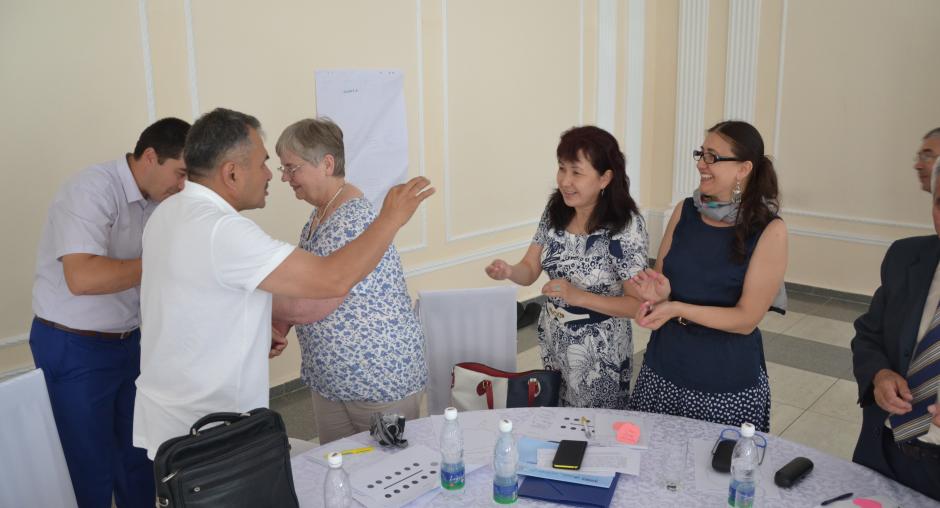OSCE High Commissioner on National Minorities holds fifth regional summer school on multilingual and multicultural education in Central Asia

A week-long regional summer school on multilingual and multicultural education was held from 10 July to 16 July 2016 in Cholponata in Kyrgyzstan - the fifth regional summer school organized as part of the OSCE High Commissioner on National Minorities’ (HCNM) Central Asia Education Programme.
Organized by the HCNM in co-operation with Kyrgyzstan’s Ministry of Education and Science, UNICEF and the Office of the UN High Commissioner on Human Rights in Kyrgyzstan, the summer school brought together 86 participants representing education institutions of the Central Asian States and of the wider region, including teacher trainers, methodological experts, university and pilot school managers and teachers, as well as international experts.
The summer school was aimed at providing practical expert support to further develop the capacity of education authorities and practitioners within multilingual and multicultural education.
Opening the summer school, Deputy Minister of Education of Kyrgyzstan Toktobubu Ashymbaeva highlighted the important role of the teacher in multilingual education programmes.
During the week, participants discussed pre-service and in-service teacher training, as well as facilitating the implementation of multilingual education programmes. Participants also developed training materials aimed at monitoring and evaluating multilingual and multicultural education programmes. As a result, eleven thematic materials were developed with the aim to further adapt them for practical use within the education institutions of the region.
Flera Saifulina, Head of the National Education Department of the Ministry of Education and Science of the Republic of Tatarstan in the Russian Federation, found that the diverse forms of activities enabled participants to express their opinions, raise concerns and receive comprehensive answers from fellow experts. She also expressed satisfaction to see how education is used for the integration of societies in the Central Asian countries.
Tatiana Aderikhina, Co-ordinator of Education and Child Protection Issues at UNICEF Kazakhstan, said: “I am glad that the cooperation between HCNM and UNICEF Kyrgyzstan continues as it brings synergies and benefits the target country.”
Zaiyrbek Ergeshev, representative of the Department of the Ethnic and Religious Issues of the Presidential Administration of Kyrgyzstan, concluded that multilingual and multicultural education is an important factor for forming a civic identity.
Since 2012, the High Commissioner has been implementing the Central Asia Education Programme, aimed at promoting multilingual and multicultural education and developing bilateral and multilateral co‑operation in the region to improve the education of national minorities and promote the integration of society.
